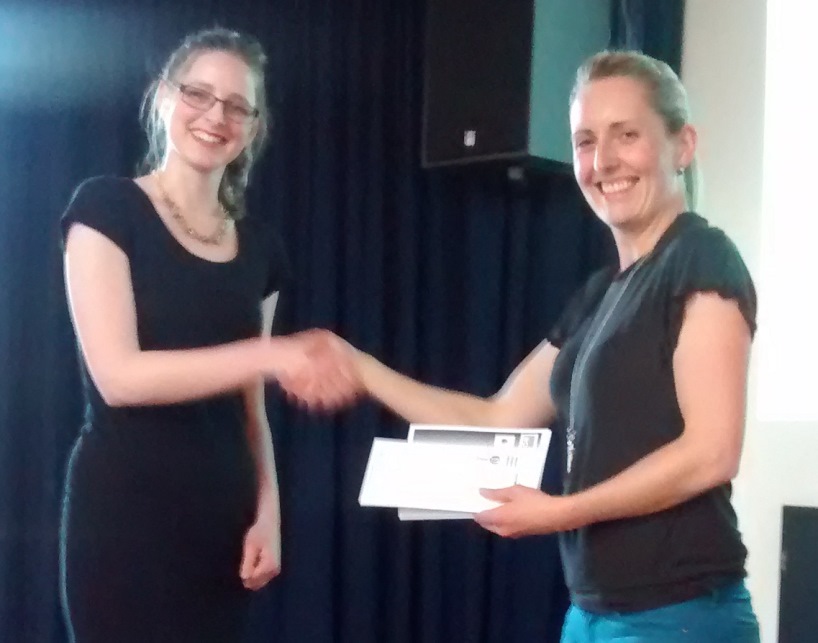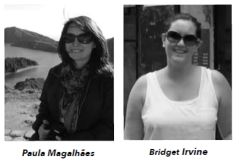This is the Department of Psychology's presentation day for students' research, a public event, held in November every year. Originally started in 1982 as the department's in-house convention, it was re-named Psycolloquy in 2005.
Psycolloquy 2024
We invite you to our annual research symposium featuring short presentations by Psychology research students and invited guests.
Invited speakers
- Dr Nadia Charania – Public Health, Auckland University of Technology, presenting on "Migration and (In)visibility: The Power of Silence in Health Policy and Data"
- Professor Julie Maheux – Université de Québec à Trois-Rivières, Québec, Canada , presenting on "Mentalizing: Regulate Emotions, Act Thoughtfully, Intervene Effectively"
- Dr Abigail Pigden – Department of General Practice and Rural Health, Dunedin School of Medicine, and Department of Psychology, University of Otago, presenting on "Introducing an equity-focussed Primary Care Research Network"
- Associate Professor Sébastien Hétu – from Université de Montréal and CIRCA Research Center, Québec, Canada, presenting "A Cognitive Neuroscience approach to study the interface between our psychology and our social environment"
- Dr Leony Galliano – Departamento de Educação Fisica, Universidade Federal do Rio Grande o Norte and Department of Psychology, University of Otago, "How much do we listen to our volunteers? The LINDA-Brasil study participant-centered intervention".
View the Psycolloquy programme (PDF)
Date and time: 25 and 26 November 2024, 9:30–4pm
Location: Room 1.03, Level 1, William James Building, 275 Leith Walk
Psycolloquy 2023
View the Psycolloquy programme (PDF)
The 2023 Psycolloquy Keynote Presenter was Dr Josh Jackson from Booth School of Business, University of Chicago. Dr Jackson presented his keynote address titled: "Moral Calculus in a Complex World".
Psycolloquy 2022
View the Psycolloquy programme
The 2022 Psycolloquy's keynote presenter was Dr Armon Tamatea from Te Puna Haumaru New Zealand Institute for Security and Crime Science, University of Waikato. Dr Tamatea will present their keynote address titled “An Ecologist's Guide to Prison Violence: understanding and embracing the Complexities of Institutional Aggression".
Psycolloquy 2020
View the Psycolloquy programme 2020 (PDF)
Speakers for the 2020 Psycolloquy were:
- Associate Professor Trent Smith (Department of Economics), “Behavioural economics and dietary choice: The McDonald's equilibrium”
- Dr Mei Peng (Department of Food Science), “Searching for a personalised index for hedonic eating”
- Associate Professor Nicola Swain (Department of Psychological Medicine), “Psychological interventions for persistent pain“
Learn about some of the exciting research taking place across Psychology and related disciplines:
Māori Perspective:
- Aroaro Tamati, "He Piki Raukura: Understanding and assessing Ao Māori child development constructs"
- Ben Hanara, "Māori perspectives of the brain"
- Rawiri Ratahi, "Pūrākau and wellbeing"
Neuroscience:
- Alina Tetereva, "Long-range temporal correlations (LRTC): a novel fMRI-based brain biomarker"
- Ashleigh Barrett-Young, "Retinal biomarkers of cognitive decline"
- Zihan Fang, "EEG biomarker for anxiety disorder"
- Yi-Sheng Wong, "Investigation of mind wandering and its relationship with task switching"
Mental Health:
- Andre Mason, "Mental health and suicidality"
- Tanwen Ward, "Tabletop role-playing game engagement in the autistic community"
- Claire Liggins, "Psychopathic Personality Disorder"
Cognition + Development:
- Amber Lim, "Children see, children learn: rich social experiences relate to mental state vocabulary of children from 12 months old"
- Ashley Hinten, "Effect of screen media on children's cognitive development"
- Liz Dovenberg, "Physical activity, quality of life, and autism spectrum disorder"
Psycolloquy 2017
The 2017 Psycolloquy's keynote presenter was Dr Sylvia Nissen from the Department of Political Science and International Relations at the University of Canterbury. Dr Nissen will present her keynote address titled "The politics of disengagement: Young people, participation and the 2017 election".
Dr Nissen completed her doctorate earlier this year in student political action Aotearoa and received the Kate Sheppard Memorial Prize for her research. Her post-doctoral work is on the project CYCLES (Children & Youth Lifestyles Evaluation Study), which examines the attitudes and aspirations of young people across the world. Dr Nissen's presentation will look at some dominant approaches for explaining youth political participation, and discuss what these theories can tell us about the rise of Jacinda Arden, the fallout from Meriria Turei's confession, and an almost universally discounted $11 billion hole in a budget.
Psycolloquy 2016
Speakers at the 2026 Psycolloquy were Drs Mihi Ratima and Will Edwards from Taumata Associates / Te Pou Tiringa who gave the keynote address titled “Researching with Māori: Opportunities for researchers and communities”.
The presenters talked about maximising opportunities for researchers and communities to work together towards research excellence in Aotearoa/New Zealand in the 21st Century, taking advantage of this country's reputation as indigenous research leaders. They will describe what effective engagement with Māori communities looks like and provides for research. In addition, the presenters will challenge current thinking, drawing on practical examples from an ongoing research project, Te Kura Mai i Tawhiti – a collaboration between Te Pou Tiringa (a Taranaki Māori community body) and the Department of Psychology's National Centre for Lifecourse Research.
Psycolloquy 2015
We were pleased to have Drs Julien Gross and Emily Macleod from the Departments of Psychology and Psychological Medicine at the University of Otago give the keynote address titled “Testing the Salvation Army's Bridge Programme Model of Addiction Treatment and where a Psychology degree can take you…”.
In 2011, the University of Otago entered into a partnership with The Salvation Army New Zealand, Fiji & Tonga Territory to examine the services that The Salvation Army provides through its nationwide social programmes. The Salvation Army prioritised an evaluation of their Bridge Programme Model of Treatment for harmful substance abuse as the starting point for the partnership.
The presenters discussed the evaluation and the recommendations that came out of the evaluation that The Salvation Army will use to guide the future direction of the Bridge Programme.
In addition, as always, there were polished presentations by students from within the Department of Psychology covering a wide range of topics – from detecting deception – to improving psychological well-being with fruit and vegetables.
The winning presentation of the day was awarded to Ashley Hinten from Damian Scarf's lab with her talk 'Four out of five ain't bad: Consistency of results and helper's behaviour in schildren's social evaluations'. The judges believed Ashley's presentation clearly presented the research she had been working on.
Psycolloquy 2015 was a huge success with the student presentations reflecting the rich and diverse research being conducted within the Department.
Psycolloquy 2014
Once again, the Department of Psychology were treated to a day of exceptional oral and visual presentations by our postgraduate students and keynote speaker Associate Professor Nigel Dickson, from the Department of Preventive and Social Medicine, who spoke about changes in sexual attraction among the Dunedin Multidisciplinary Health and Development Study cohort.
 The winning presentation of the day was awarded to Kahla Redman (Halberstadt lab) with her talk titled Paperbacks and prejudice: Can reading fiction influence attitudes towards women?
The winning presentation of the day was awarded to Kahla Redman (Halberstadt lab) with her talk titled Paperbacks and prejudice: Can reading fiction influence attitudes towards women?
Talks that earned a special mention were:
- Thom Elson (Bilkey lab) - A dual loop hypothesis of schizophrenia
- David Barton (Halberstadt lab) - The effect of liking on having a good or bad first name
- Anna Barham (Treharne lab) - Living with an invisible neurological condition: an interpretative phenomenological analysis
- Bruno Aldaz (Treharne lab) - The experience of cancer treatment: A qualitative study of patients' experiences during adjuvant treatment in New Zealand
- Bridget Irvine (Zajac lab) - “Of course I lied, mum asked me to!” The effect of cross-examination on children's responses when they have been coached to lie
Read the Psycolloquy 2014 programme
Thanks to Continuing Education and the Department of Psychology for supporting Psycolloquy 2014 – the Department's presentation day for students' research.
Psycolloquy 2013
Psycolloquy received some well-deserved media attention with a story appearing in the Uni News section of the Otago Bulletin Board and the Otago Daily Times, the latter perhaps being due to our keynote speaker, Dr Paul Trotman giving a very entertaining address entitled Story, Emotion and Science.
Paul is a GP and a Documentary Film-Maker. He is possibly most well-known for his documentary series, Donated to Science, in which he follows the complete story of body donation for medical science, beginning with interviews with the donors and then with participating medical students at the University of Otago School of Medicine.
Otago Bulletin news article about Psycolloquy
ODT article about Dr Paul Trotman: Storyteller sells science
Psychology students give outstanding presentations
The high standard of presentations from students was once again impressive, and the judges found it incredibly difficult to choose an out-right winner. They finally decided - after a lot of discussion - on two winners:
 | Anna Barham
|
and | |
 | Sam O'SullivanThe “right” name feels right: The influence of stimulus “fit” on affective experience |
Both Anna and Sam gave fluent and entertaining presentations - Sam's 'Prezi' show was almost as innovative as his research and Paul was impressed by the way Anna 'teased' the audience into her talk - a practise Paul uses himself.
Finally, a special mention must go to the Psycolloquy Committee, Drs Jules Gross, Fiona Jack and Helena McAnally. Every year, they ensure this special day runs without a hitch, with a tremendous amount of organisation taking place both leading up to and during the day.
See you next year!
Read the Psycolloquy 2013 programme
Thanks Continuing Education for supporting Psycolloquy 2013 - the Department of Psychology's presentation day for students' research.
Psycolloquy 2012
In 2012, we were pleased to have Dr Donna Rose Addis, from the School of Psychology and Centre for Brain Research at the University of Auckland, give the keynote address, titled Making the Future Memorable.
Using the 'Ghost Chip' advertisement as an analogy, Dr Addis gave a riveting talk on how we can draw on past experiences when constructing possible future events – at times creating very detailed simulations in our minds of future activities. Although future simulations can enhance wellbeing, problem solving and decision making, to do so, they must be successfully encoded and maintained in memory.
Postgraduate Presentations

Presentations of research by students from within the Psychology Department were complemented by stimulating visuals. Our two winners of the day were:
- Paula Magalhaes - The Sunk Cost Effect in pigeons, and
- Bridget Irvine - Preparing children for cross-examination: Can children generalise from practice questions to the real deal?